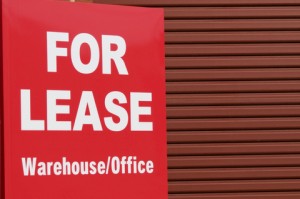 Location. Location. Location. We’ve all heard it before, but it’s no less true for being often said.
Location. Location. Location. We’ve all heard it before, but it’s no less true for being often said.
Where you set up shop for your small business is an important consideration for many reasons. The physical location of your business is important because it determines whether you have adequate facilities in which to conduct your business, influences the public image of your business and is a factor in logistics.
For many web-based businesses, location isn’t really a big concern beyond having reliable electric and Internet services and comfortable surroundings. For businesses that need a brick-and-mortar location, choosing the right spot for your business is critical.
In general, there are five types of business locations:
Homebased – These businesses are, as the name suggests, operated from the home of the proprietor. Many types of businesses can be homebased, including professional services such as tax preparers or small scale industries such as bakeries or autoshops. If you chose to go the homebased route, make sure your landlord, mortgage broker and/or insurer are okay with it, and also make sure that your home has the facilities you need to operate your business and is inviting to potential customers.
Retail – Retail space is best suited for stores, shops or professional services and can typically be found in shopping centers, stand-alone buildings or special districts. Zoning laws typically dictate what type of business is classified as a retail operation and can operate in retail space.
Mobile – Some businesses can operate from trucks, vans or automobiles. Independent delivery, curbside businesses or businesses that make house calls can typically operate from a mobile location.
Commercial – Commercial space is best suited to offices, who don’t need as much parking and access as retail stores. A solid commercial location can add value and prestige to a business based on its location. Some commercial landlords even offer copying, secretarial and other services to tenants.
Industrial – Industrial locations have the water, sewage, disposal, electrical and other access necessary for the needs of industry. Industrial-type businesses typically aren’t suited, or even allowed, in other types of business locations, so if your small business involves handling dangerous materials or industrial processes, finding an industrial location is necessary.
When picking a location, consider the following factors:
Price – Rent is a big factor in most small businesses’ budgets. While having an office in a swanky complex may seem nice, if you’re on a shoestring budget you may want to hang your shingle on your own front door until your business gets off the ground. Choose a place that’s appropriate for your business and your budget.
Safety – Is the place you’re looking at renting in a high-crime neighborhood? Is the area appropriate for the type of business you want to conduct. Your customers are likely to have preferences about where they choose to shop and visit, so locating your business in an appropriate location suitable for your type of business is important.
Facilities – Does the place you’re considering for your business have facilities adequate to meet the needs of your business? Electical and Internet connections, phone service, water outlets, ventilation, sanitation and space are all important considerations when choosing a physical location for your small business.
Accessibility – Customers can’t use your business if they can’t find it or have difficulty parking there. When choosing a location for your business, make sure that it is easy to find and that ample parking is available. A visible location with good signage is a 24/7 advertisement for your business, so make sure your location can be seen.
Aes thetics – Choosing a physically attractive location is also important, as customers may equate an ugly building or squalid conditions with an unprofessional operation. If your location is less than perfect, see if you can get your landlord to do some renovations, or see if you can do them on your own.
thetics – Choosing a physically attractive location is also important, as customers may equate an ugly building or squalid conditions with an unprofessional operation. If your location is less than perfect, see if you can get your landlord to do some renovations, or see if you can do them on your own.
Zoning – When opening up shop, it’s important to be sure that your business complies with all state and local laws concerning the uses of property at your location. Many a business has been shut down because it was in an area not zoned for business or industry or because it was unable to comply with environmental or safety rules for its location.
Neighbors – Are your neighbors likely to be disturbed by your business? Are you likely to be disturbed by theirs? While a Christian bookstore and an exotic dancing lounge are both legitimate businesses, they may not make the best neighbors. When choosing a location, consider your surroundings to be sure you’ll fit in with the other businesses and homes in your area.
By making the right call with regard to location, you can maximize your appeal to potential customers, ensure safety and security, comply with the law and avoid complaints from neighbors and other concerned parties.













